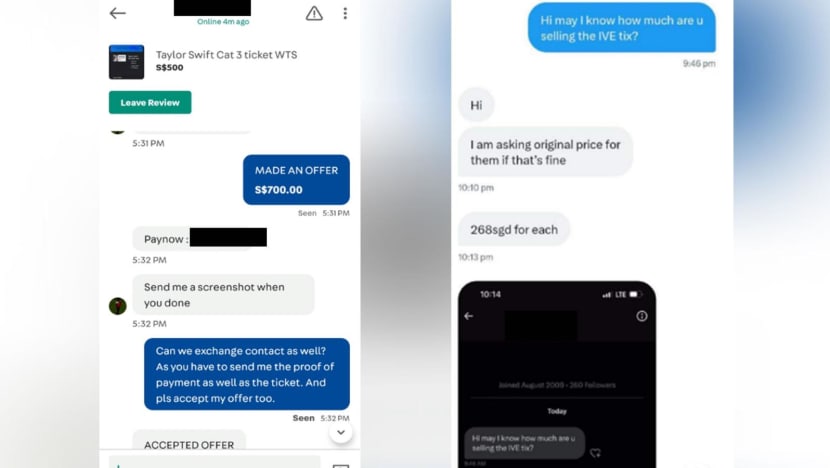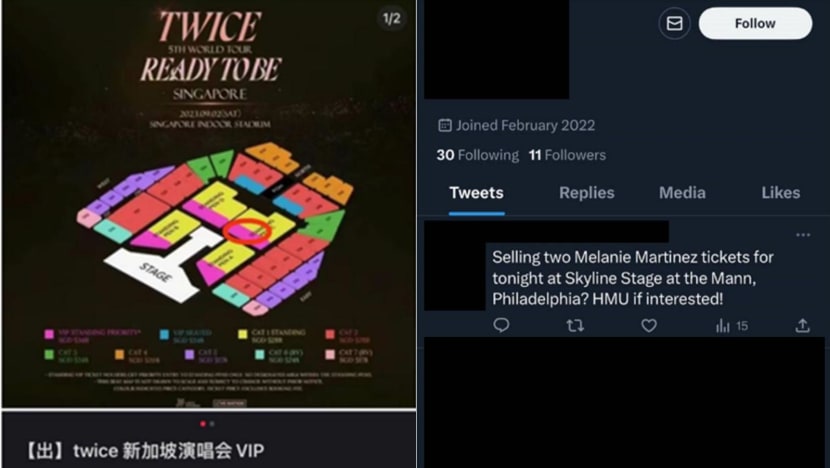At least S$480,000 lost in concert ticket scams since January, over 460 in Singapore cheated

A conversation between a scammer and a victim. (Images: SPF)
SINGAPORE: Scammers preying on concertgoers have cheated more than 400 people of at least S$480,000 (US$355,600) since the start of the year, said the police on Thursday (Jul 6).
With a lineup of top acts such as Taylor Swift and Coldplay heading to Singapore, there has been a resurgence of scams involving the sale of concert tickets, the police said.
At least 462 victims have fallen prey to such scams since January.
According to the police, victims would come across advertisements for concert tickets on e-commerce or social media platforms such as Carousell, Xiaohongshu, Facebook, Telegram and Twitter.

They would then contact the scammers via the platform's in-app messaging function or be redirected to messaging apps such as WhatsApp, Telegram or WeChat to purchase the tickets.
When asked if the tickets were authentic, scammers would then provide screenshots and videos of fake tickets or receipts.
"To urge victims into making payment quickly, scammers would claim that ticket sales were time-sensitive or limited in quantity, and also promised to email or transfer the tickets to the victims’ Ticketmaster account after successful payment," said the police, adding that payments were usually made via virtual credits, PayNow or bank transfers.
"In some cases, the scammers would also request for additional payments by citing reasons such as not receiving the payments sent by the victims," said the police.
Precautionary measures
- Add: The ScamShield application to your device and set security features such as enabling two-factor (2FA) or multifactor authentication for banks and set transaction limits. Use "escrow" payment options that protect buyers by releasing payment to the seller only upon delivery, but avoid making advance payments or direct bank transfers as this method does not protect buyers. Only purchase from authorised sellers and legitimate ticket marketplaces/resellers and not from third-party resellers.
- Check: Verify the authenticity of the physical tickets by arranging for a physical meet-up with the seller.
- Tell: Authorities, family and friends about scams. Report any fraudulent advertisements to the social media and e-commerce platforms.
Upon receiving the payments, scammers would then delay delivery of the tickets by claiming that they were unable to transfer the tickets to the victims. They would subsequently become uncontactable.
Victims who received tickets via email or WhatsApp would only realise that they had been cheated when the tickets were found to be invalid on the day of the concert, or when scammers refused to provide physical tickets.
"The police would like to remind the public to be discerning when shopping online, especially when purchasing concert tickets from online third-party resellers," they said.
For more information, the public can visit www.scamalert.sg or call the Anti-Scam Hotline at 1800-722-6688.
Those with information relating to scams can call the police hotline at 1800-255-0000 or submit information online.

















